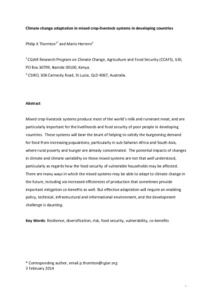Framework Document for a Global Partnership for Oceans
This document summarizes the approach
that the global partnership for oceans (GPO) will take in
its work with countries to help improve the health of the
oceans and reduce coastal poverty. Restoring the health of
the world's ocean is a global challenge that can and
must be solved if one has to alleviate poverty, build
resilient communities, and foster strong coastal economies.
The natural systems underpinning the health of the ocean and


